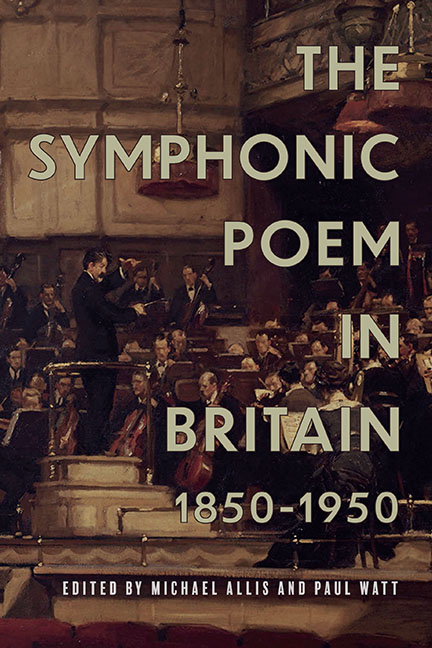3 - Richard Strauss’s Tone Poems in Britain, 1890–1950
Published online by Cambridge University Press: 23 October 2020
Summary
‘[T]he greatest genius of our day & for many a long day past, Richard Strauss’
(Edward Elgar)‘In my young days, there was a saying that went the rounds in music-loving circles: “If Richard, why not Wagner? If Strauss, why not Johann?” ‘
(R.W.S. Mendl)ON 24 June 1914 Richard Strauss was awarded an honorary doctorate in music by the University of Oxford. A month later, the outbreak of World War I led to the confiscation of the composer's considerable savings held in British banks (£37,000, equating to c. £1.5m today). The country that had honoured him as ‘the musician of our century or perhaps even of one to come’ also treated him as a representative of the enemy, with his works banned from performance during both World Wars. Musically if not financially, Britain subsequently made reparations to Strauss, most notably by honouring the composer with a festival of his music in 1947, two years before his death. This was the occasion of the last of Strauss's sixteen visits to Britain, a series that had begun exactly fifty years earlier. Even before 1897 Strauss's music had begun to be heard in metropolitan centres around the country, with the tone poems serving as bell-wethers for fierce debates over musical beauty, programme music and aesthetic modernity more generally. Strauss's visits generally centred around conducting engagements and in this role he was an effective propagandist for his own music, but his orchestral works were rewarding vehicles for many other conductors too. As a result, the tone poems soon became repertory staples in Britain in spite of their contested reception. In 1903 the first festival devoted to Strauss's music was held in London, evidence that even before his fortieth birthday he was recognised in Britain as one of the major musical voices of the age.
This chapter will delve into the contested early reception of Strauss's tone poems in Britain, looking at the cut and thrust of debates in contemporary concert reviews up to the 1903 festival. Early performances of the two tone poems that had their British premières after this date will also be examined, with particular consideration of how the Great War impacted on perceptions of Eine Alpensinfonie. The subsequent assimilation of the tone poems into the standard concert-hall repertory in the decades leading up to the 1947 festival will be traced more summarily.
- Type
- Chapter
- Information
- The Symphonic Poem in Britain, 1850–1950 , pp. 80 - 114Publisher: Boydell & BrewerPrint publication year: 2020



